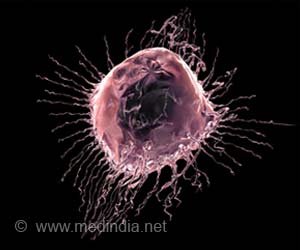More than 10 percent of the U.S. population has diabetes, with an estimated 2 in 5 Americans expected to develop the chronic disease during their lifetime.
Breast Cancer and Diabetes – A Dangerous Combo
However, past research has uncovered associations between the two diseases. Women with diabetes, for example, have a 20 to 27 percent increased risk of developing breast cancer. Insulin resistance, a key characteristic of diabetes has been associated with breast cancer incidence and poor survival.
But these epidemiological linkages are not clear-cut or definitive, and some studies have found no associations at all.
In a new study published in Nature Cell Biology, a research team led by scientists at the University of California San Diego School of Medicine described a possible biological mechanism connecting the two diseases.
“No disease is an island because no cell lives alone,” said corresponding study author Shizhen Emily Wang, Ph.D., professor of pathology at UC San Diego School of Medicine.
Breast Cancer Might Be A Hindrance To Insulin
In this study, they described how breast cancer cells impair the function of pancreatic islets to make them produce less insulin than needed, leading to higher blood glucose levels in breast cancer patients compared to females without cancer.
The culprit is extracellular vesicles (EV) hollow spheres secreted or shed by cells that transport DNA, RNA, proteins, fats, and other materials between cells, a sort of cargo communication system.
In this case, the cancer cells were found to be secreting microRNA-122 into the vesicles. When vesicles reach the pancreas, they can enter the islet cells responsible for insulin production, dispense their miR-122 cargo and damage the islets’ critical function in maintaining a normal blood glucose level.
They use more glucose than healthy cells to fuel tumor growth, and this has been the basis for PET scans in cancer detection. By increasing blood glucose that can be easily used by cancer cells, breast tumors make their favorite food and, meanwhile, deprive this essential nutrient of normal cells.
The research was conducted using mouse models, which found that slow-releasing insulin pellets or a glucose-lowering drug known as an SGLT2 inhibitor restored normal control of glucose in the presence of a breast tumor, which in turn suppressed the tumor’s growth.
These findings support a greater need for diabetes screening and prevention among breast cancer patients and survivors.
Source: Medindia



